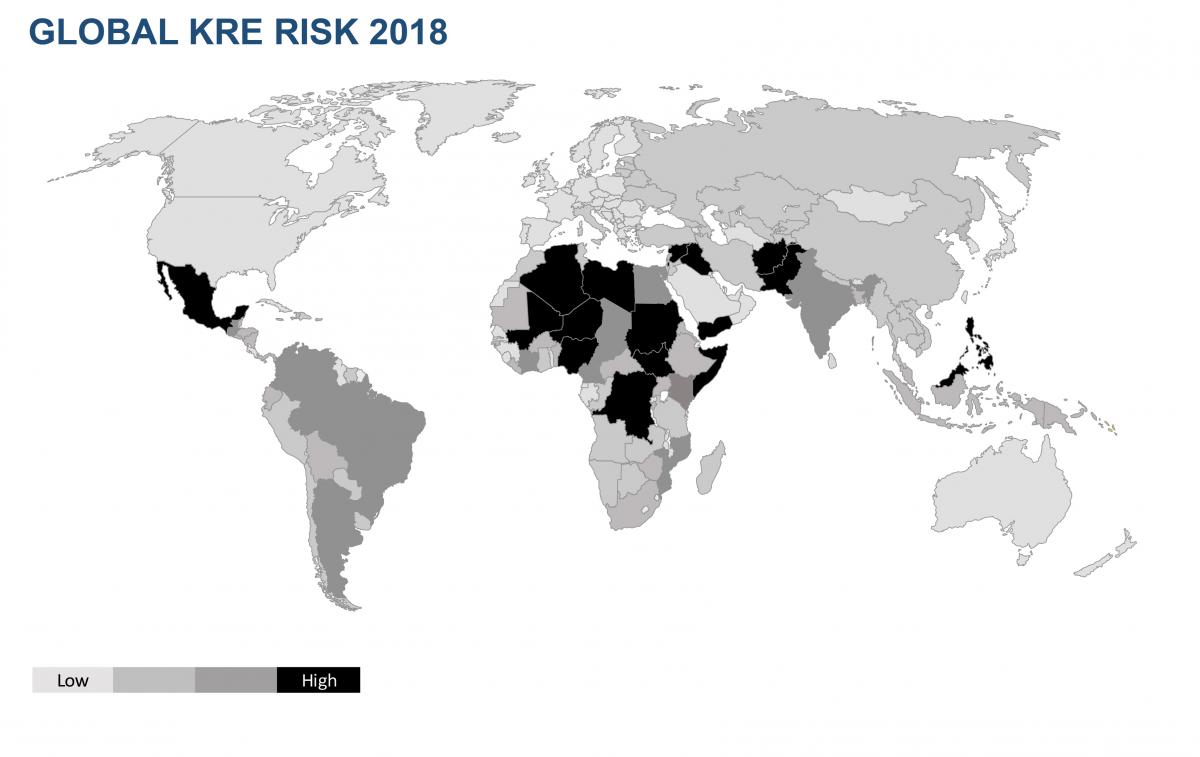Market Insight?Critical risk: Extortion, blackmail and kidnap for ransom

John Chase and Brittany Damora, Schillings’ extortion, blackmail and kidnap for ransom specialists, set out the scope of the threat and what steps family offices and family businesses need to take when faced with this type of critical risk scenario
It’s all about the money
Ideological narratives and beheadings dominate the news when it comes to the world of kidnap for ransom. However, financial incentives remain the principal driver for the crime across the globe.
On 23 April this year, a Tel Aviv District Court sentenced a man for hacking the Bank Yahav’s computer system and attempting to blackmail the bank for millions of dollars’ worth of Bitcoin. The individual accessed the bank’s database and compiled a list of its wealthiest clients with the intent to sell their information to the highest bidder on the dark net.
Financial success and worldwide public exposure often force wealthy families and organisations into the spotlight and readily available online databases such as the Panama Papers, Paradise Papers and public registers, including the OECD’s Common Reporting Standard (CRS), only compound this exposure and increases the threat of extortion, blackmail and kidnap.
At present, only 10-20% of extortions, blackmails or kidnaps are reported worldwide, making the precise size of the threat impossible to determine. Nonetheless, privileged sources and anecdotal evidence estimate about 30,000 incidents of kidnap for ransom alone per year, with about 1,000 of these involving foreign nationals.
In 2018, extortion, blackmail and kidnap for ransom are extreme and endemic risks for individuals and businesses operating in many countries around the world.
 It’s all online
It’s all online
Not only is information on the wealth and personal activities of international families increasingly available in the public domain, but criminal gangs and terrorist groups are utilising this information to quickly identify, assess and track potential victims.
Intelligent use of social media tools, along with a level of trust when socialising and doing business online, have fuelled the ever-expanding presence of cyber-crime in extortion, blackmail and kidnapping activities across the globe.
Social intelligence monitoring has replaced human intelligence as the method in which extortionists are targeting and tracking their victims. Recently we advised on a case where a foreign national on secondment with their family was extorted after the children posted details—and unknowingly the precise location—of their relatively lavish, but temporary, home on social media.
Find the fix
Extortion, blackmail and kidnap for ransom response often begins with an insurance policy. Policies are issued on an indemnity basis and can be sold by specialist brokers to businesses, organisations and individuals. They can be tailored to specific requirements which cover wealth owners, their spouses, extended family, guests and employees of the household. Coverage can encompass extortion, blackmail, kidnap, cyber-attacks, piracy, business interruption, illegal detention and any associated medical costs, property damage, legal fees and other financial expenses.
 Insurance companies often use the services of specialist teams, including Schillings, to provide immediate advice and a collaborative response.
Insurance companies often use the services of specialist teams, including Schillings, to provide immediate advice and a collaborative response.
The response team, which always works on behalf of the client and not the insurer, employ experienced advisers to navigate an extortion, blackmail or kidnap for ransom incident. Utilising this type of adviser ensures a nearly perfect success rate for safely resolving these types of critical incidents.
Specialists can also advise on extortion, blackmail and kidnap for ransom brokers, as well as underwriters. They will also provide bespoke crisis management team training, which is often covered under the insurance policy’s “subvention” allowance.

Beyond the money
Reputation is often another victim of a mismanaged incident.
In the event of an extortion, blackmail or kidnap occurring, specialist advisers will be able to expertly guide the client and the crisis management team through the entire process, using principles and methodologies developed and proven over several decades. This often includes deploying advisers to the client’s location—usually within 24 hours.
In addition to advising on all aspects of the crisis situation, a specialist adviser will map out the likely sequence of events, the immediate next steps to take, as well as devising a clear strategy for resolving the crisis as quickly and safely as possible.
During the negotiation, the adviser will constantly be on hand to steer the family through the process and will advise on a range of established negotiation tools that will help to ensure the safe and timely release of the victim, funds or information. These can include a proof of life, financial strategy, communication scripts, release and post-release management, media engagement and reputation and privacy protection.
In any extortion, blackmail and kidnap negotiation, a number of stakeholders will be involved. From a reputational perspective, these third parties, including government, local authorities and family members, will need to be managed carefully in order to minimise any media interest that could be detrimental to negotiations or the reputation of the individual or organisation. Confidentiality during an extortion, blackmail or kidnap for ransom incident is a key component of a successful outcome.
Extortion, blackmail and kidnap for ransom: Top tips
• Understand the specific risks in the countries you operate in. Prepare, train and adapt to best mitigate these threats
• Insure yourself. Families with business dealings in or who travel to high risk-prone countries should have a robust insurance policy that covers:
- Prevention, preparedness and crisis management team training by a specialist response team
- Financial reimbursement of all costs associated with an insured event
- Immediate access to a specialist response team who can advise on the complex and sensitive issues that need to be addressed during an extortion, blackmail or kidnap incident
• Maintain confidentiality at every level of your family and organisation. Regularly review your social media and online exposure
• In the event of an incident, engage trusted advisers and act quickly to regain control
• Plan for post-incident, including the long-term effects on reputation and future attack vulnerability.
Schillings is an issues and crisis law firm specialising in threats to reputation and privacy. They provide a premier response service dedicated to extortion, blackmail, kidnap for ransom and cyber-attack for wealth owners and international families.
T. +44 (0)20 7034 9000
John.Chase@schillingspartners.com







